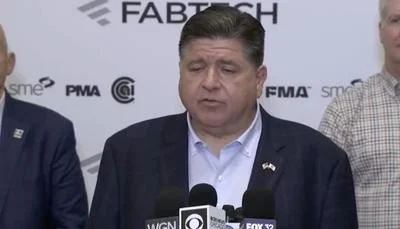With the issuing of a stay-at-home order by Gov. J.B. Pritzker, residents are restricted from any travel outside the home except for essential tasks such as acquiring essential supplies. | Wikimedia commons
With the issuing of a stay-at-home order by Gov. J.B. Pritzker, residents are restricted from any travel outside the home except for essential tasks such as acquiring essential supplies. | Wikimedia commons
With the issuing of a stay-at-home order by Gov. J.B. Prizker, residents are restricted from any travel outside the home except for essential tasks such as acquiring essential supplies, and other changes and adjustments are going into effect, including state and federal financial responses to the crisis.
The order leaves room for “essential workers” to continue to report to their jobs, including hospital staff, first responders, mail carriers, and other essential service workers such as grocery employees, according to the Caucus Blog.
Pritzker also issued executive orders covering services deemed essential for supporting COVID-19 response, including one aimed at maintaining the structure of daycare services that watch over the children of others involved in essential work.
The executive orders by Pritzker also give room for Illinois schools to conduct e-learning without seeking additional curriculum approvals.
Pritzker also waived the requirement for certified nurse assistants to be active on the Health Care Worker Registry in order to be employed in ongoing efforts.
In support of the continued response, the Illinois Manufacturers’ Association has designated a task force to retool manufacturing to produce needed equipment and supplies.
The Illinois National Guard has also been called up to assist with the response, including transport and distribution of medical supplies.
In assessing the lost revenue situation created by the COVID-19 situation, the Illinois House Republicans stated that the only known at this time is that revenue will be down. The hope is that federal relief programs will help all 50 states to offset lost revenue, but the end point for the crisis is unknown. It is not possible to say how much federal intervention will help.
With the passage of federal COVID-19 relief bills, Illinois can expect some additional funding for Medicaid programs as health care facilities struggle to handle regular patients as well as those dirtectly impacted by the virus.
The Federal CARES program also has created a $350 billion Paycheck Protection Loan program that will assist businesses with fewer than 500 employees. The maximum amount permitted per business is $10 million.






 Alerts Sign-up
Alerts Sign-up